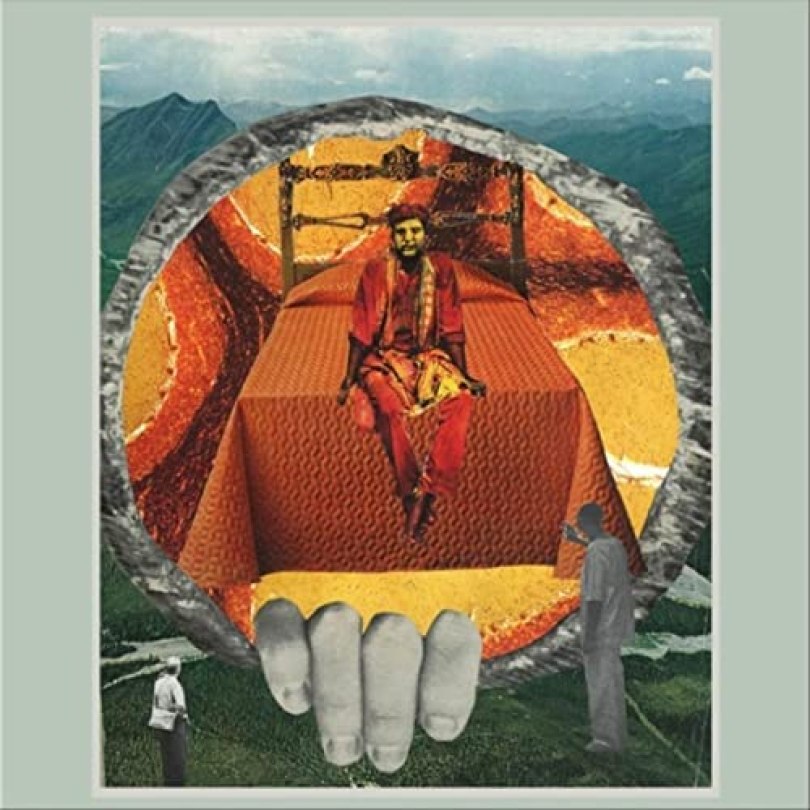
Feature image credit: WJCT

Recently, we caught up with veteran singer/songwriter, Cory Driscoll. Among other things, we touch on what he’s been up to during the lockdown, his origins in music, his newest music, and a whole lot more.
If you would like to learn more about Cory Driscoll, the link to his Instagram can be found here. Once you’ve checked those out, dig into this interview with Cory. Cheers.
Andrew:
How have you been holding up over the last year or so? What have you been up to?
Cory:
While it’s been taxing on my mental health for sure, I am grateful to have fared reasonably well through this strange year. In addition to my own full-length record Eureka Springs coming out in March, I was able to work on two additional EPs, Fondly by Kevin PM, and the upcoming Velvet Glove by Bad Madonna.
Andrew:
Before we dive into your professional career, let’s go back a bit. What first got you hooked on music?
Cory:
Growing up, my earliest music memories are of my parent’s record collection; Talking Heads, Paul Simon, The Beatles, The Stones, Cat Stevens, Neil Young, Roxy Music. Then popular radio stations introduced me to REM, and I fell in love with “Losing My Religion.” It didn’t hurt that my interest in it ruffled the feathers of my conservative Christian surroundings, but primarily I was struck by the idea that you could communicate personal poetic truths in songwriting.
Andrew:
Who were some of your early influences?
Cory:
In addition to those earliest influences listed above, my formative years were spent immersed in the Emo culture. It started with The Get Up Kids and Saves The Day, Juliana Theory, and Sunny Day Real Estate. These were the things I liked but wasn’t necessarily immediately inspired by. When I got into Bright Eyes, Destroyer, and Modest Mouse is when I started to formulate ideas about how I might want to also make music. Funny to think that it was some twenty years ago now.

Andrew:
Let’s talk about recent events. Tell us about your new single, “Hope Changes.” How did this track come together?
Cory:
“Hope Changes” gets its title from how many times it changed. For being a relatively simple song, the words saw many iterations before I was satisfied with it. When I wrote the original words some few years ago, I recognized them as bitter and unbecoming. Through the whittling process, it became a song about acceptance and well-wishing. What started as a song about hoping “the truth” might come to avenge the narrator became a song about hoping we all grow to accept “the truth” is always changing.
I recorded a demo and sent it to drummer, AJ Donahue, in Asheville, North Carolina. We talked about Beck’s Sea Change as a reference. Once he’d laid down the rhythm, we sent it out to multi-instrumentalist, Ben Varian, in Los Angeles. He sent it back with organs and slide guitar. Bassist, Dave Pinkham, crushed it with his falsetto backing vocals in Austin, Texas setting the mood for the track. Sam Lloyd, in Tallahassee, provided additional guitar and textures, and Jeremy Dean sent his tracks from Costa Rica, augmenting the vocal stylings with his distinct complement to my, and Dave’s voices.
Andrew:
What themes are you exploring with your new music?
Cory:
Eureka Springs is about hope, disappointment, acceptance, and hope again. “Hope Changes” rests right in the middle as the fifth track of the nine-song album at the beginning of the acceptance phase.
Andrew:
From a songwriting perspective, how have you evolved since the release of your 2018 EP, Tropical Depression?
Cory:
When I look back on the recordings I’ve made over the years, of course, I hear the growth in the person who made the music and in the maturity of the voice and general professionalism. But what stands out most to me about the difference in this release from my last is the pacing. Tropical Depression is brisk, and generally, is moving from part to part to part very quickly. While I think that serves that album, I’m proud of the way Eureka Springs is more patient, resting on parts worth celebrating longer.
Andrew:
Are you into vinyl? Cassettes? CDs? Or are you all digital now? What are a few of your favorite albums, and why?
Cory:
I do love vinyl, though admittedly, my collection is meager compared to most. My brother Jeff has a wall-to-wall collection, and it’s always seemed to me that he was the one of us that was going to collect records, and I’d be the one to make them. Kaput by Destroyer had a profound impact on me. I’m proud to own it on vinyl along with the majority of his records. That one, in particular, is special to me because I’d been a fan a while, and I just wasn’t expecting at all when it came out that it would sound the way it did; 80s drum samples, washed-out saxophone.

Andrew:
What other passions do you have? How do those passions inform your music, if at all?
Cory:
Certainly, music is at the top of the passion list, but I do love visual art, film, and travel. All these things influence my work, but I think travel is the easiest to point to. I wrote most of the words to “Eureka Springs” in the town of that same name in Arkansas. I was drawn to the place for its name, “Eureka Springs” sounds like a source of knowledge. On top of the name, the place harbored a story rich in poetry — it was a holy place to the native peoples who agreed there was to be no strife near the freshwater source.
Andrew:
In your opinion, what is the state of the music business these days? Should artists be hopeful? Scared? Both?
Cory:
It’s tough, but it’s always been tough. Above all, I think it is a rewarding life to write, and play music.
Andrew:
Last one. What’s next on your docket? What are you looking forward to most in the post-COVID world?
Cory:
Coming up next is the release of an additional single titled “Promised Land” on January 28th, followed by the video/single “Ahead of My Heals” on February 25th. And then, the full length comes out on March 18th, 2022. I’m looking forward to going to many shows and playing in them.

Interested in learning more about Cory Driscoll? Check out the link below:
Dig this interview? Check out the full catalog of VWMusic Interviews, by Andrew Daly, here: www.vinylwritermusic.com/interviews
